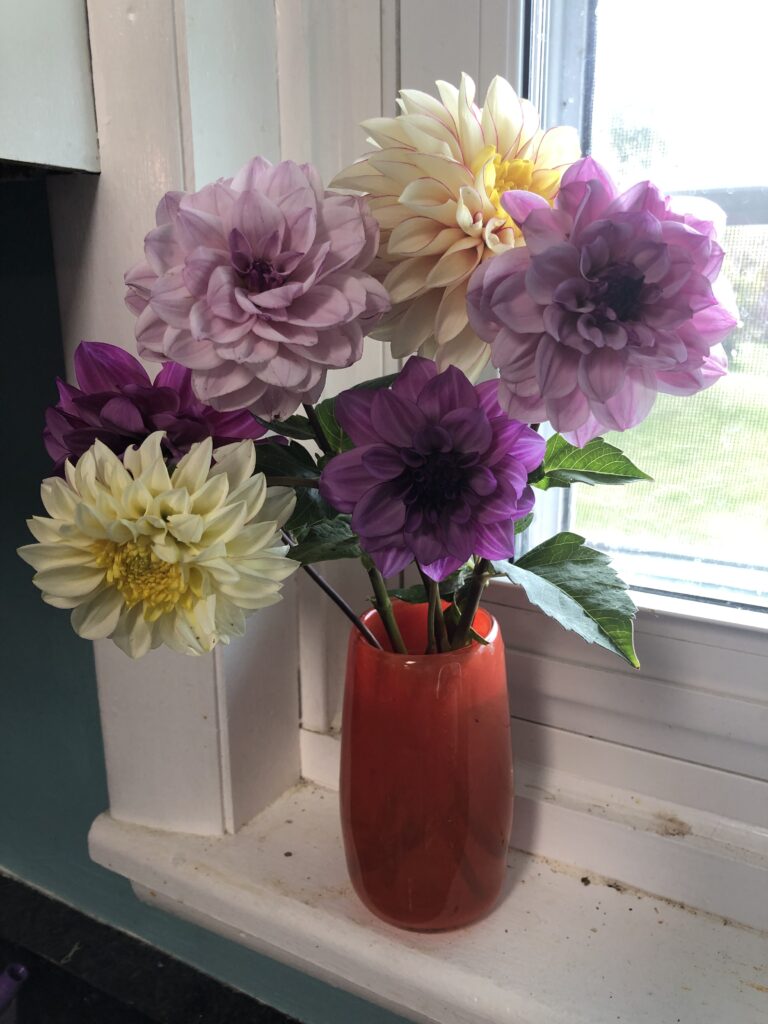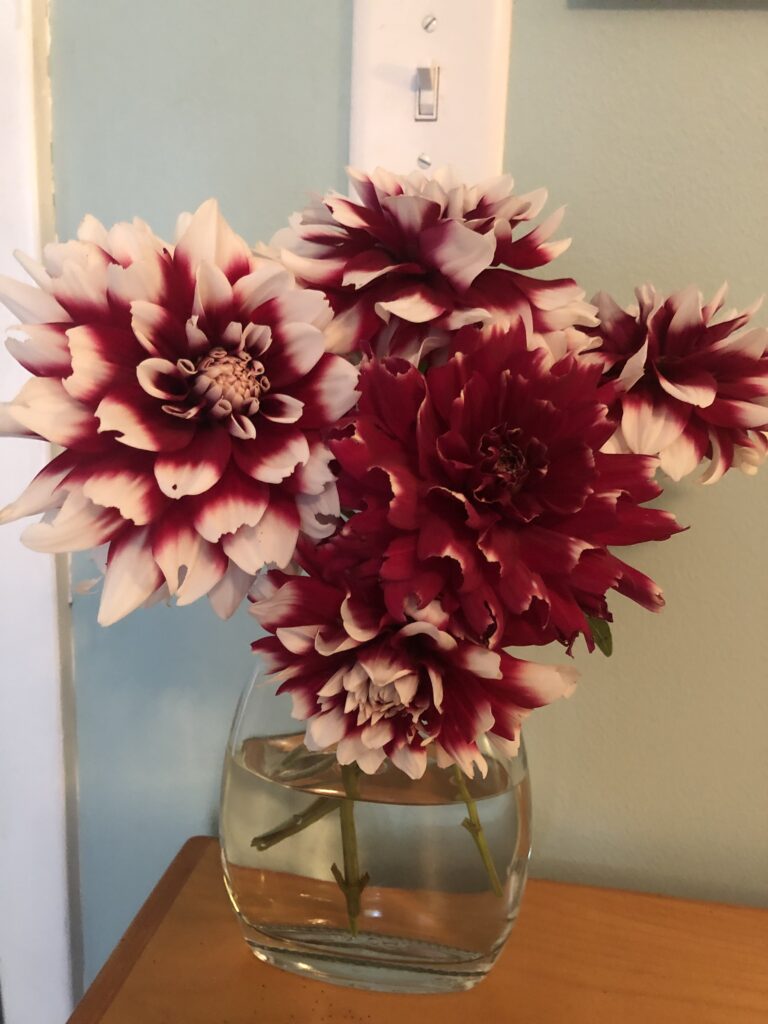I love a good visual aide for learning. Take a look at these root clumps that I recently lifted from my dahlias. I’ve placed them on a paper dinner plate for size reference.
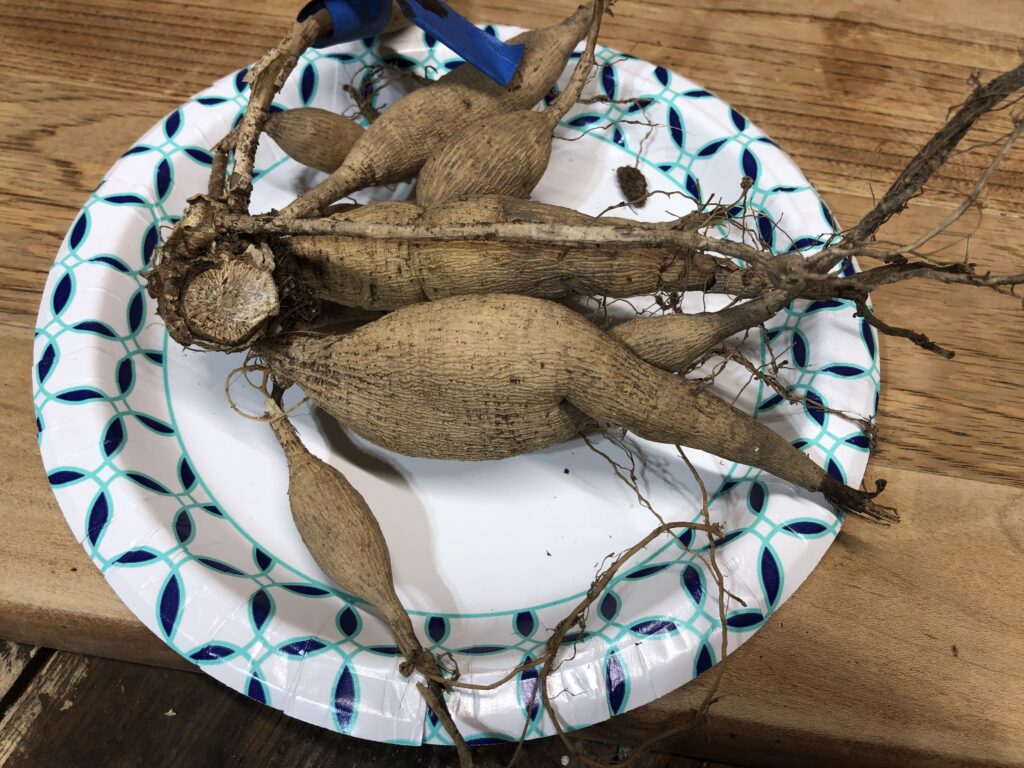
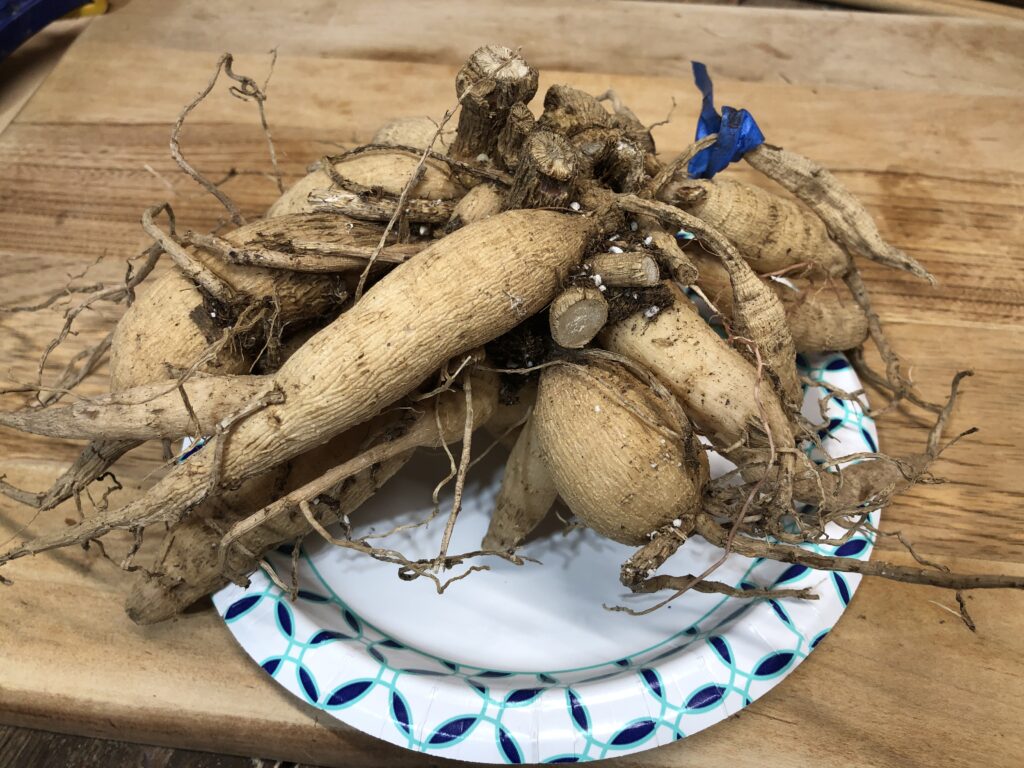
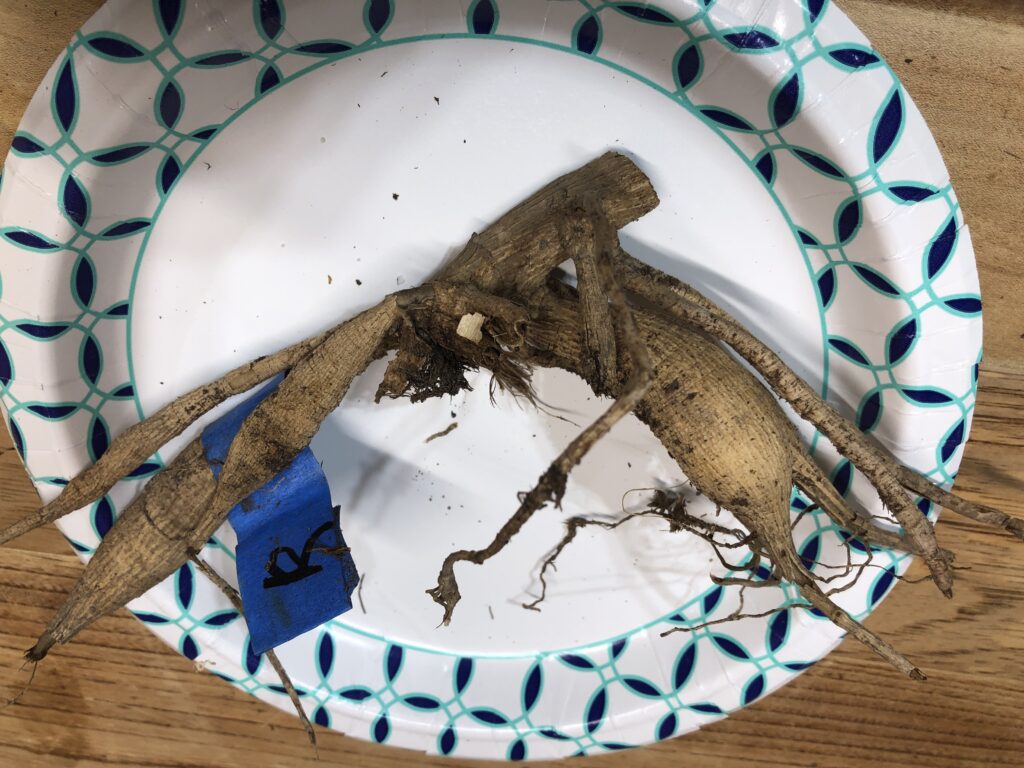
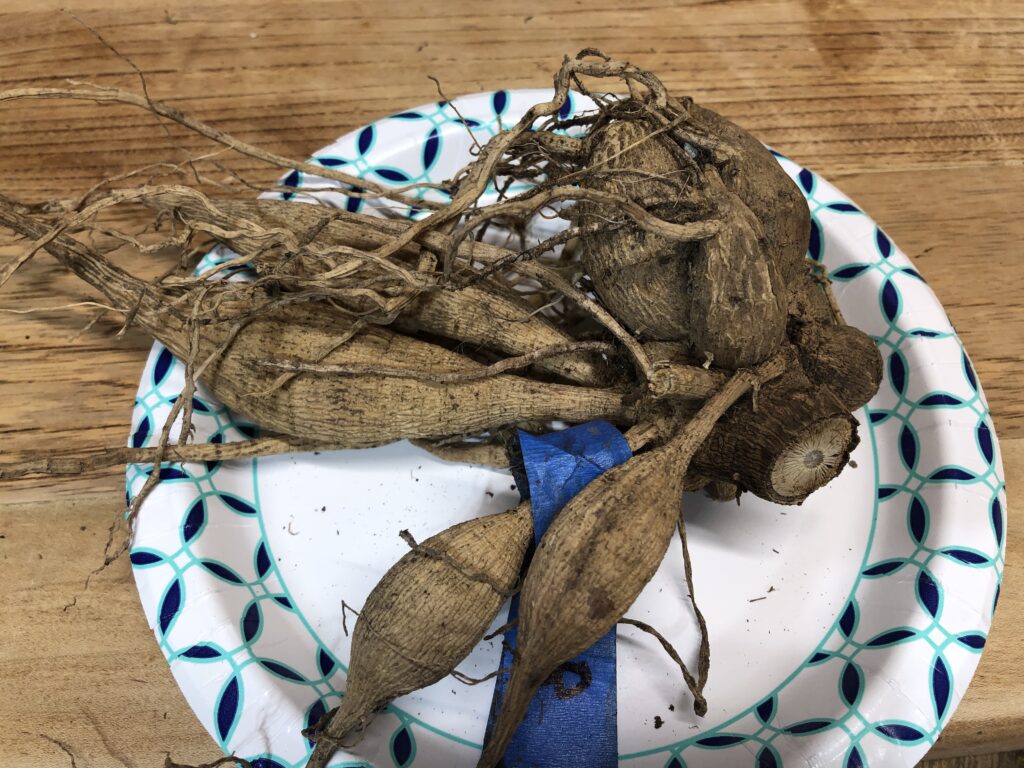
These two sets of clumps are the exact same variety of flower and each originated from a single tuber that I planted. They were packaged together and likely came from the same original clump of tubers that was split. But look at the size difference after one growing season. I was astonished by the amount of growth in the bigger sets. What is the singular difference between the tuber that grew into a large clump and the tuber whose growth was small and stunted?
The soil.
The larger clumps developed from a single tuber planted in a newly turned garden area of rich soil. The smaller clumps came out of my infamous hillside garden full of dry sandy soil. It’s easy to tell which soil was a better growing environment for the tubers.
This got me thinking about my own growth as a wife, mother, and follower of Jesus. If I took a look, would I be astonished by the amount of growth that’s happened in the past seven months? Or would I find only meager progress and limited life developing? What is the quality of my growing environment, or my soil, if you will?
If I am assessing my actual garden soil, I am going to consider its contents and whether it has the right nutrients for good plant growth, things like nitrogen, potassium and phosphorus. If my soil is deficient in these things, then despite my watering of the plants, and the hours of sunlight the plants receive, the growth will not happen. Both of my tubers pictured received the same amount of sunlight and water, but the growth outcome was very different. The soil is the key.
What is the soil of my life like? What are the key ingredients that make up my growing environment? Does it have key nutrients like prayer, rest, solitude, time in the Word of God, service, healthy boundaries? If these ingredients are lacking, then for me, growth will also be lacking.
Or is my soil comprised of anxious thoughts, busyness and weariness (they go hand in hand!), selfishness, toxic relationships, constant noise, fear, anger, comparison? The list goes on an on, and for you maybe the toxic soil composition is different – substance abuse, obsession with something, addiction, perfectionism, critical thoughts, stress. There are many killing ingredients we can allow to be in our soil that will inhibit our growth.
If today you’re assessing your own growth and your own soil and you find it lacking healthy nutrients, then start making small changes. (Too many abrupt changes for a plant can also lead to its demise!) One step is a good step. It doesn’t need to be many steps or big steps to make a big difference. Look at the good list above – what can you add to your environment? Worship music playing quietly in your home in the morning as everyone is starting their day? A faith-based podcast on your commute? A weekend free of event after event so that you can rest? A 15-minute devotion to end your day? Setting aside your phone for an afternoon regardless of who is texting you for emotional support? (You don’t have to be at everyone’s beck and call 24 hours a day!)
Boundaries are healthy. Rest is healthy. Solitude is healthy. Time in God’s presence (prayer, worship, Word) is healthy.
If you want to see more growth, try adding some of these things to your soil. When you reassess in a few months, I pray you are surprised to find bountiful growth, producing beautiful fruit in your own life!
“But the seed on good soil stands for those with a noble and good heart, who hear the word, retain it, and by persevering produce a crop.” (Luke 8:15)
“I am the vine; you are the branches. If you remain in me and I in you, you will bear much fruit; apart from me you can do nothing.” (John 15:5)
“Be diligent in these matters; give yourself wholly to them, so that everyone may see your progress.” (I Timothy 4:15)
“Let us not become weary in doing good, for at the proper time we will reap a harvest if we do not give up.” (Galatians 6:9)
